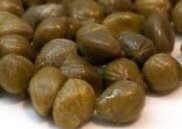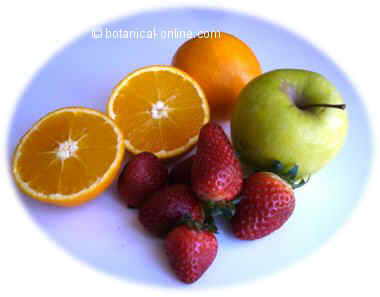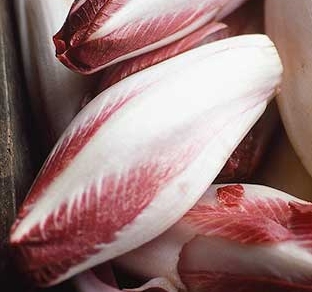Contents
- 1 CONTRAINDICATIONS OF ORANGE JUICE
- 2 Is orange juice good or bad?
- 3 Does orange juice have contraindications?
- 4 Contraindications of orange juice
- 5 Allergy to juice or orange juice
- 6 Juice or orange juice and migraine
- 7 Orange juice for diabetes and obesity
- 8 Orange juice for weight loss
- 9 Orange juice and intestinal disorders
- 10 Is orange good for the stomach? Is it contraindicated for the ulcer?
- 11 Does orange juice damage tooth enamel?
- 12 Does orange juice lose its vitamins if it is not taken immediately?
CONTRAINDICATIONS OF ORANGE JUICE
Is orange juice good or bad?
Orange juice has always been known to be very healthy for its high content of vitamin C. In addition, in a more detailed study of the properties of orange, we see that it also contains a type of components called citroflavonoids, which they are hesperidin, quercetin and rutin, also with potentially beneficial properties for health (greater content in these components if the juice is consumed with the pulp).

Orange juice. Next to it is a dish with the pulp left over from the juice, which is very rich in fiber and flavonoids
We could risk to affirm that, after milk, orange juice is one of the most consumed foods in breakfast, being able to find so much in hotels, as in any restaurant and in many homes of the whole world. That is why many people ask themselves: can it be harmful to have juice? Being sweet, is it good for weight loss? The answers to these questions will be found here.
Does orange juice have contraindications?
Logically, orange juice is an edible food and has no toxicity, that is, it has no poisonous component. However, in certain cases, juice or orange juice may have an unwanted effect on the organism, and for this reason there are important contraindications to be taken into account.
- For example, some people may experience migraines or a laxative effect when drinking this beverage. These adverse effects are related to the contraindications of orange juice.
Contraindications of orange juice
There are some considerations that must be taken into account when taking orange juice to prevent it from producing unwanted effects. The main contraindications of orange juice can be summarized in the following points:
Allergy to juice or orange juice
Despite its obvious goodness, orange juice or oranges can produce allergic reactions with skin manifestations in some people. People with allergies to fruits may be allergic to citrus, but not necessarily.

Photo of half orange
Normally, people with allergies to fruits are allergic to proteins found in fruits called LTP (lipid transport proteins). These proteins are phylogenetically identical between species, which can lead to cross reactions of allergy. For example, when there is an allergy to Rosaceae, such as peach or peach (Prunus persica), there is also an allergy due to cross reaction with apricot (Prunus americana) or plums (Prunus domestica), because they are from the same family and they contain identical or very similar proteins between species.
In contrast, orange (Citrus x sinensis) belongs to the family of citrus fruits (Rutaceae), such as lime (Citrus aurantifolia), lemon (Citrus x limon) or tangerine (Citrus reticulata). Possibly, a person with an allergy to the Rosaceae can eat oranges, although there are people who are also allergic to citrus fruits and can not consume these fruits (Consult the allergist).
Juice or orange juice and migraine
It has also been proven that the ingestion of orange juice can cause migraine in certain people who have deficit of the DAO enzyme.
Orange and other citrus fruits carry histamine, which is not harmful in itself, since the body can metabolize and neutralize it, through an enzyme called DAO. It has been observed that some people have low activity of this intestinal enzyme, what produces that the histamine of the orange is not neutralized, and that this arrives at the blood producing vasoconstriction, headache and migraines.
* More information: Citrus and migraine
Orange juice for diabetes and obesity
Orange juice contains sugars that are assimilated very quickly. In a good glass of juice we can be eating 3 oranges and in just a few sips, which means the rapid ingestion of a lot of sugar. In addition, the juice is usually devoid of much of the natural fiber of the fruit.
These two factors produce that the ingestion of orange juice can produce hyperglycemia, especially in people with insulin resistance, as is the case of diabetes, gestational diabetes, overweight, obesity, menopause and PCOS (polycystic ovary syndrome).
This aspect has caused numerous reports of dietitians nutritionists warning about the possible damages of juices for diabetes. However, it should be mentioned that there are interesting recommendations that can be given before prohibiting , which are: the frequency with which they are consumed and the foods with which the juice is combined.
Orange juice for weight loss
Ideal to lose weight is to consume whole fruits, not squeezed or beaten, because then the assimilation of their sugars is very fast and hyperglycemia can occur. Occasionally, orange juice can be consumed in diets to lose weight, but it is convenient to combine it with other foods that lower your glycemic index.
The foods that decrease the glycemic index are those rich in healthy fats, proteins and fiber: eggs, nuts, almonds, yogurt (unsweetened), white meat, carrots, a broccoli dish, etc.

Photo of oranges in a market, showing their pulp
Orange juice and intestinal disorders
The ingestion of orange juice can cause intestinal problems, with the appearance of acidity, flatulence, diarrhea, etc. so it is better to ingest it with caution until you see what the individual reactions are.
People with irritable bowel syndrome may have food intolerance and have outbreaks with fasting juice intake, due to the stimulating effect of the discharge of bile produced by the ingestion of orange juice. In these cases, an adequate diet is recommended.
The intestinal effect of ingesting orange juice for people with cholecystectomy, that is, people who have had their gallbladder removed, can also be very aggressive. In these cases there is usually diarrhea and it is recommended to consume in moderation (better the fruit than the juice).
The orange itself can be tolerated in a diet FODMAPs, which is a type of diet recommended for people with intestinal diseases.
Is orange good for the stomach? Is it contraindicated for the ulcer?
The bad reputation that citrus have for the stomach is unfair and unfounded. While it is true that they contain citric acid, an irritant component, its concentration in this substance is very low. Specifically, orange has up to 4 times less citric acid than lemon.
Anyway, these fruits are not harmful to the stomach, nor to the ulcer. Its content in vitamin C and its flavonoids help to heal the tissues and is advisable in the diet for stomach ulcers. Of course, it is preferable to take the whole fruit that squeezed, or dilute it, if you have to consume fasting.
Does orange juice damage tooth enamel?
The cause of the corrosion of the tooth enamel is citric acid, which is not found in the orange in as much quantity as in the lemon, therefore, it is not as aggressive.
Orange juice, on the other hand, is very rich in sugar, which can cause tooth decay if you do not have proper oral hygiene.
Does orange juice lose its vitamins if it is not taken immediately?
 Main properties and benefits of orange juice: it is very antioxidant, has citroflavonoids that improve circulation, and is suitable for any healthy diet. Because of its folic acid content, it is very good in pregnancy
Main properties and benefits of orange juice: it is very antioxidant, has citroflavonoids that improve circulation, and is suitable for any healthy diet. Because of its folic acid content, it is very good in pregnancy
It is a false myth that orange juice loses vitamins during storage. It has been scientifically proven that the vitamin C content is practically identical in a freshly squeezed juice and in another preserved 12 hours in refrigeration. Rather it seems that this myth is told to the children so that they have breakfast on time and do not delay in going to school.
However, because enzymes and other living substances in fruits are found in the juice, it is possible that the juice will change color over time due to the oxidation of these components.
Vitamin C is one of the components that are transformed from ascorbic acid to dehydroascorbic acid, which is how this vitamin is assimilated. That is to say, this oxidation of vitamin C is also produced in our intestine in a natural way to assimilate it.
That is, once the fruit is squeezed, some living components of the juice react with oxygen to form different molecules, which have a different color. This is easily seen in apple and pear juices, which turn brown due to browning enzymes.
To avoid that the components of the juice oxidize, it is best to keep them cold if they are not going to be consumed in a short time (the cold slows down the oxidation processes).
In commercial preparations, what is done is to process the juices at high temperatures to inactivate these enzymes and thus prevent them from changing their color, and also lengthen their commercial life (the heat kills the bacteria), although this goes at the expense of the loss of vitamins.
![]() More information on oranges.
More information on oranges.








